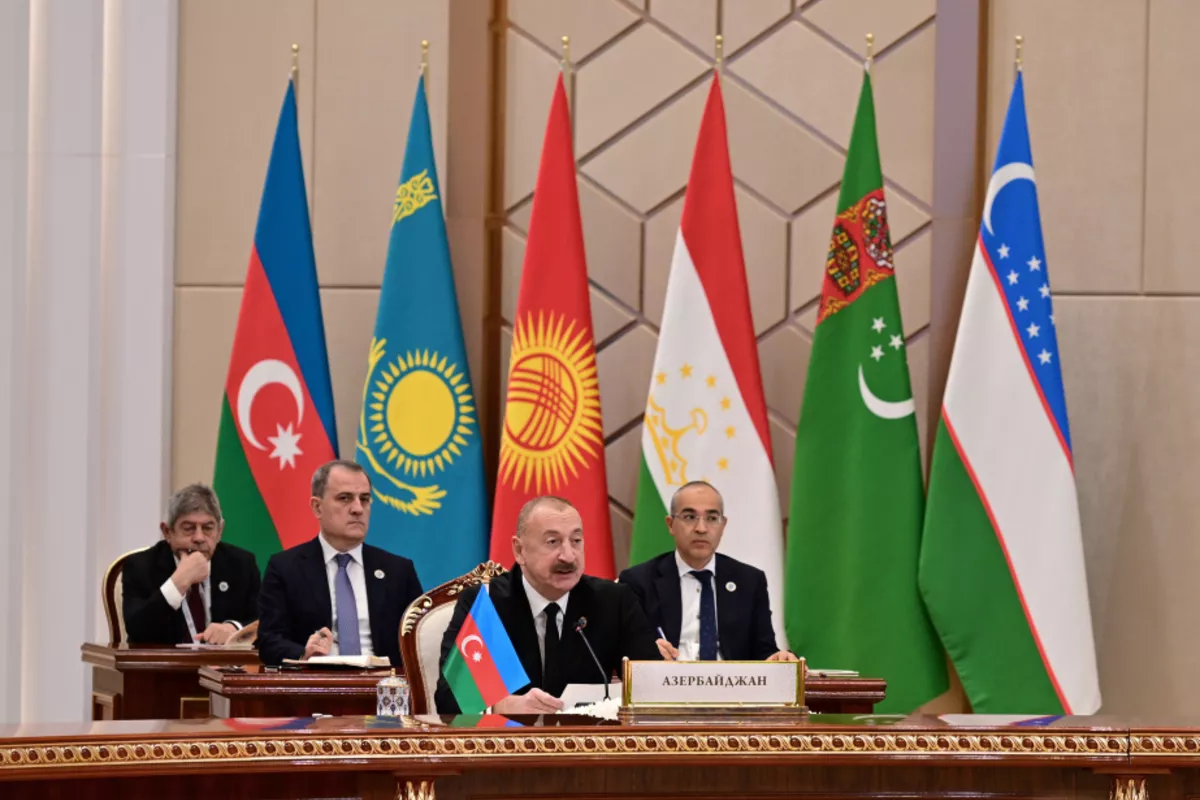
Photo: AZERTAC
Cooperation between Azerbaijan and the Central Asian states has in recent years evolved from episodic contacts into a more consistent regional dynamic. Azerbaijani President Ilham Aliyev's visit to Uzbekistan to attend the 7th Consultative Meeting of Central Asian Leaders is another indication that Azerbaijan’s presence in this format is no longer viewed as an exception, but increasingly as part of a new regional reality.
Azerbaijan’s first participation in the Consultative Meeting took place in 2023 in Dushanbe. At the time, it drew attention and prompted discussion: Was this a one-time invitation, a diplomatic courtesy, or the beginning of a longer-term policy? Subsequent developments, including President Aliyev’s participation in the 2024 session in Astana and now in Tashkent, show that this direction of Azerbaijani foreign policy is deliberate and steadily expanding.
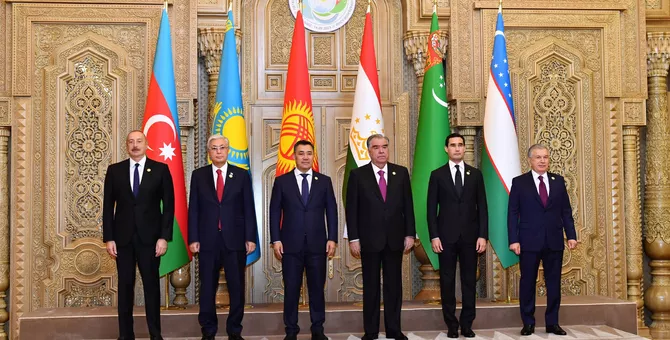
photo: President.az
The reasons for closer engagement are largely practical. Central Asia is undergoing a period of infrastructure development and policy diversification, driven by the need to expand trade routes, secure access to foreign markets, and strengthen international partnerships. In this context, Azerbaijan is of interest as a key link in the Middle Corridor and the Trans-Caspian transport network connecting the region to Europe.
For the Central Asian states, Azerbaijan’s role is not limited to geography. Baku is embedded in the European energy system and maintains long-term cooperation with the European Union as a natural gas supplier and transit hub. This creates potential for Azerbaijan to serve as an intermediary - political, logistical, and industrial - between Central Asia and Europe.
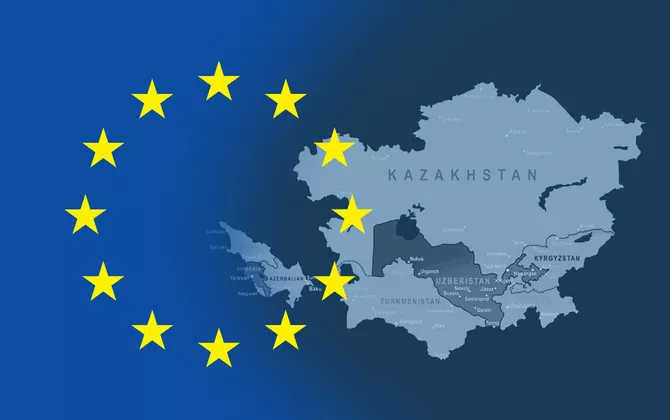
photo: Proreforms.uz
Economic cooperation is growing, though it still lags behind the political dimension. Central Asian countries see Azerbaijan as a partner for industrial cooperation, transport logistics, digital infrastructure, and joint investment projects. According to official figures, trade between Azerbaijan and Uzbekistan has increased by approximately 15% since the beginning of the year, a modest but notable indicator of momentum.
Joint initiatives in automotive manufacturing, energy, agriculture, and tourism are moving from discussion to implementation. If this trajectory continues, economic cooperation may acquire a more structured and institutionalized framework.
Security has also emerged as an area of interest. With the expansion of regional transport corridors, the question of protecting infrastructure and ensuring uninterrupted connectivity has become more prominent.
Azerbaijan’s experience in modernizing its defense capabilities and managing post-conflict territories is followed in Central Asia with pragmatic interest. While this does not imply the formation of a military alliance, regular consultations and exchanges appear to be increasing.
This cooperation cannot be separated from the broader geopolitical context. Central Asia remains an arena where the interests of China, Russia, the United States, the European Union, Türkiye, and indirectly, Iran intersect. China prioritizes regional transport integration under the Belt and Road Initiative. The United States seeks engagement through formats such as C5+1, while the EU focuses on infrastructure.
funding and energy diversification. Russia maintains its historical role, though its influence is adapting to new circumstances. Türkiye has strengthened its presence through political and cultural platforms.
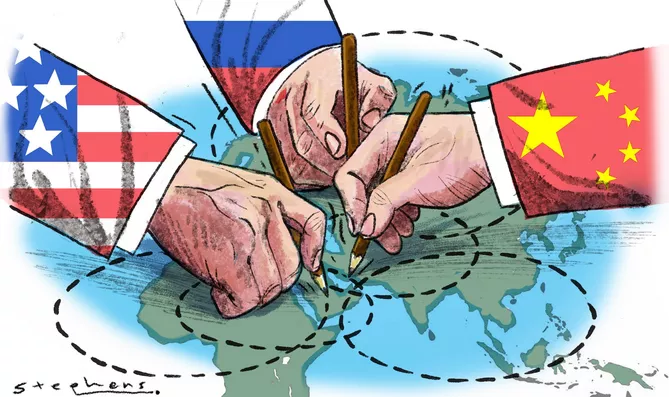
photo: TASS
In this environment, Azerbaijan occupies a middle position - not a global actor, yet increasingly a connector between larger geopolitical systems. For the Central Asian states, this may be advantageous as it provides options without forcing alignment with a single external power.
Importantly, current engagement does not resemble a formal integration project. It is more accurately described as a flexible and gradual alignment of interests, where political dialogue develops faster than institutional mechanisms. Some analysts refer to this emerging model as “regional connectivity without binding integration,” a framework that allows states to cooperate while retaining strategic autonomy.
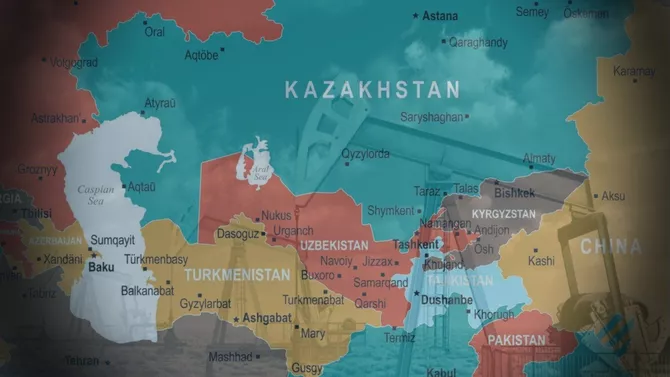
photo: APA
Future developments will depend on several factors: whether the region can protect infrastructure from political and security risks; whether economic diversification continues; and whether the format remains insulated from great-power competition.
Azerbaijan’s third consecutive participation in the Consultative Meeting suggests that the relationship between Azerbaijan and Central Asia is consolidating into a stable pattern. While still evolving, it is becoming one of the notable trends in Eurasian diplomacy, influencing transport corridors, energy strategies, and broader regional planning.
Share on social media